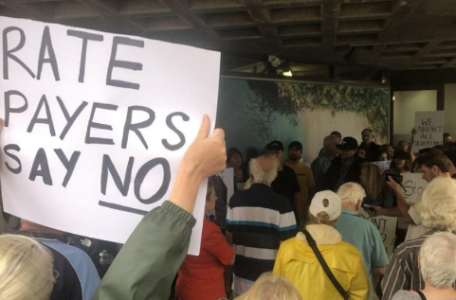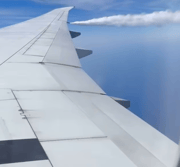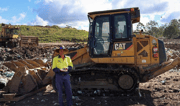They just voted to take $181 more from you—here's why
By
Maan
- Replies 0
Managing local council budgets is never straightforward, but recent developments on the Northern Beaches have left many residents stunned and frustrated.
What unfolded at a packed council meeting this week was about more than just dollars and cents—it highlighted growing community tension and calls for accountability.
The outcome? A controversial decision with major financial implications for households.
Tensions flared on Sydney’s Northern Beaches as the local council moved forward with a deeply unpopular financial plan, despite vocal backlash from ratepayers already grappling with rising living costs.
On 18 June, the Northern Beaches Council (NBC) voted 11–4 in favour of a 25 per cent rate hike, a move expected to inject $50 million into its budget over two years.
Inside the Dee Why chambers, councillors debated under pressure. Outside, dozens of protestors rallied, hoping to sway votes in a last-ditch effort to stop the increase.
Members of the Northern Beaches People Voice movement made their message clear. Founder Stuart Gold addressed the council directly, pleading for financial restraint and warning against ‘inappropriate spending’.
‘Why can’t council find more ways to reduce costs? I think I can think of a few…executive salaries, 111 positions costing $25.8 million,’ he said.
‘Cut executive positions by one third and you save $8.5 million, throw in some executive cars and you save over $11 million straight off the bat.’
Despite the calls, the council pressed on, citing urgent infrastructure demands, natural disaster recovery, and storm water upgrades as justification.
Ratepayers will now face a $168 general rate increase in the next financial year, alongside a $13 rise in the waste charge—bringing the total hike to $181, with the storm water charge unchanged.
The decision followed a failed attempt by NBC to introduce a 39.7 per cent hike, which was knocked back by the Independent Pricing and Regulatory Tribunal (IPART). That original plan, narrowly passed at 8–7, would have generated $57 million over three years.
Still, NBC warned the revised figure was necessary to avoid ‘critical failures’ in local infrastructure, with funds earmarked for projects like refurbishing the Warringah Aquatic Centre and improving emergency preparedness.
Independent MP Sophie Scamps voiced her opposition, saying it was ‘not the right time’ to burden households with sharp increases.
By the time the meeting wrapped up, the vote had been sealed—but many residents walked away feeling ignored, unheard, and angry.
For many locals, the decision felt like a slap in the face—especially for those on fixed incomes already stretched thin. If you’re wondering how it got to this point, you're not alone.
Watch the footage to see what residents had to say—and why so many are refusing to stay silent.
Source: Youtube/Sky News Australia

With many households already feeling the pinch, do you think rate rises like this are fair when other cost-cutting options exist? Let us know your thoughts in the comments.
In a previous story, we covered the frustration many Australians felt after MPs received a $15,000 pay rise—despite ongoing financial pressure in households across the country.
When you're watching every dollar and bills keep climbing, it’s hard not to notice who isn’t tightening their belt.
If this council decision left a bad taste in your mouth, that one might too.
Read more: ‘Many Australians continue to experience financial challenges’: Meanwhile, MPs just scored a $15k raise
What unfolded at a packed council meeting this week was about more than just dollars and cents—it highlighted growing community tension and calls for accountability.
The outcome? A controversial decision with major financial implications for households.
Tensions flared on Sydney’s Northern Beaches as the local council moved forward with a deeply unpopular financial plan, despite vocal backlash from ratepayers already grappling with rising living costs.
On 18 June, the Northern Beaches Council (NBC) voted 11–4 in favour of a 25 per cent rate hike, a move expected to inject $50 million into its budget over two years.
Inside the Dee Why chambers, councillors debated under pressure. Outside, dozens of protestors rallied, hoping to sway votes in a last-ditch effort to stop the increase.
Members of the Northern Beaches People Voice movement made their message clear. Founder Stuart Gold addressed the council directly, pleading for financial restraint and warning against ‘inappropriate spending’.
‘Why can’t council find more ways to reduce costs? I think I can think of a few…executive salaries, 111 positions costing $25.8 million,’ he said.
‘Cut executive positions by one third and you save $8.5 million, throw in some executive cars and you save over $11 million straight off the bat.’
Despite the calls, the council pressed on, citing urgent infrastructure demands, natural disaster recovery, and storm water upgrades as justification.
Ratepayers will now face a $168 general rate increase in the next financial year, alongside a $13 rise in the waste charge—bringing the total hike to $181, with the storm water charge unchanged.
The decision followed a failed attempt by NBC to introduce a 39.7 per cent hike, which was knocked back by the Independent Pricing and Regulatory Tribunal (IPART). That original plan, narrowly passed at 8–7, would have generated $57 million over three years.
Still, NBC warned the revised figure was necessary to avoid ‘critical failures’ in local infrastructure, with funds earmarked for projects like refurbishing the Warringah Aquatic Centre and improving emergency preparedness.
Independent MP Sophie Scamps voiced her opposition, saying it was ‘not the right time’ to burden households with sharp increases.
By the time the meeting wrapped up, the vote had been sealed—but many residents walked away feeling ignored, unheard, and angry.
For many locals, the decision felt like a slap in the face—especially for those on fixed incomes already stretched thin. If you’re wondering how it got to this point, you're not alone.
Watch the footage to see what residents had to say—and why so many are refusing to stay silent.
Source: Youtube/Sky News Australia
Key Takeaways
- Northern Beaches Council voted 11-4 in favour of a 25 per cent rate hike, drawing backlash from residents.
- Protestors and community groups urged the council to cut executive costs instead of raising rates.
- The rate rise will add \$181 to household charges in the next financial year, with funds going to infrastructure and disaster recovery.
- Much of the council meeting was dominated by debate over the Middle East, sparking criticism for straying from local issues.
With many households already feeling the pinch, do you think rate rises like this are fair when other cost-cutting options exist? Let us know your thoughts in the comments.
In a previous story, we covered the frustration many Australians felt after MPs received a $15,000 pay rise—despite ongoing financial pressure in households across the country.
When you're watching every dollar and bills keep climbing, it’s hard not to notice who isn’t tightening their belt.
If this council decision left a bad taste in your mouth, that one might too.
Read more: ‘Many Australians continue to experience financial challenges’: Meanwhile, MPs just scored a $15k raise








